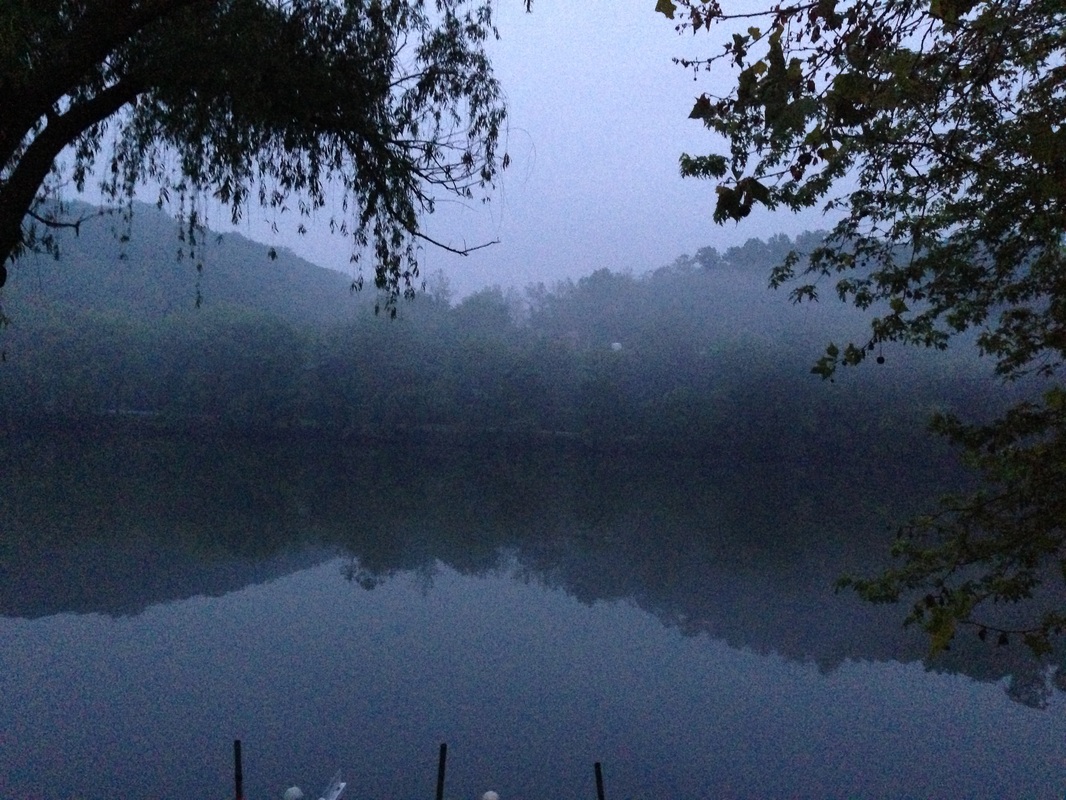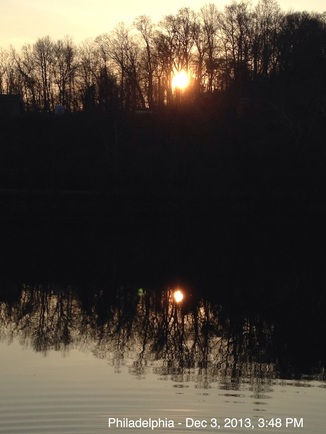|
September 17, 2014
When you live on the water you notice that it changes day to day. Yesterday the Schuylkill River at the back of my property was glassy. Still as a lake and reflective as a mirror. What is happening? No tide, no wind, did the earth stop spinning? Certainly not the latter; everything on the surface would slip into the black void of space. What you see: The fish jumping and insects in the evening picking at the surface; the bank on the other side a second time; reality in muted dark colors; a sense of space expanded; land and water together. For me, in mid-September, at 39.9N, 75.1W, I feel strongly the cusp of the seasons. Grateful for the axis of the earth and the rotation around the sun: It puts my life in perspective with this structure of time and change. You may suspect that my origins put me in a more temperate and less changeable climate - right! When you live really close to the water, you learn that your life is sometimes strongly governed by it. The river is the biggest natural element in my life that causes me to monitor, allows me to observe, beacons when she is beautiful, chases when she is mighty and threatening. The water table and the rising of the waters determine what and where I can plant. Sometimes, I ignore this, but then I learn: In a swath of "lawn" (actually mowed weeds with some monoculture) I planted three fruit trees my second year here. By the second year of their life they perished. Was it the underground septic tank not filtering well enough? Was it the water table drowning my trees? The table rises with the River, and sometimes the River itself overflows the banks, making its way along the west side of my house (the lawn side) all the way to the road in front. I learned that the River's toxicity rises with its elevation. I used to think, logically enough, that when the water level rose, the relative toxicity lessened. I reasoned that more water made the suspended particles less dense. Wrong: when the water rises it pulls in everything from the banks, which turns out to be mostly garbage. Once or twice a year, when things are really churning, I see tree trunks, cars, chairs, sealed paint cans, and dead animals floating by. Well, I wish it would all float by, but the water carries some of it onto my property and lodges some of it in the stairs and dock, one time piled six feet high in a tangle of branches and sludge. Now I understand how all that garbage gets out to sea to form The Great Pacific Garbage Patch. See National Geographic for an in-depth article that is extremely interesting and horrifying. I note: All life and land is contiguous. Gardening as an activity of humans is natural: we cultivate; but as a feature upon the land it is anything but natural. It is a pleasure, but it is also a fight. That dynamic quality is, of course, the challenge that keeps us in perpetual motion; for if you let up in this clime, the reclamation of the land is brutally sub-tropical. Still a "stranger in a strange land" after almost six and a half years, it is this fact that helps me remain the observer. Life is a dance: participant - observer - participant - observer. Anthropologists maintain they can be participant-observers in their field work. That is the most self-complimentary stance to assume; also rather intellectually complementary, no? We plant, we watch. We weed and water (well not much watering has to take place here), we watch. We walk and sit. We bring our friends in and we watch them as they look at our marks on the land. This blog marks the beginning of my intentional garden. |


